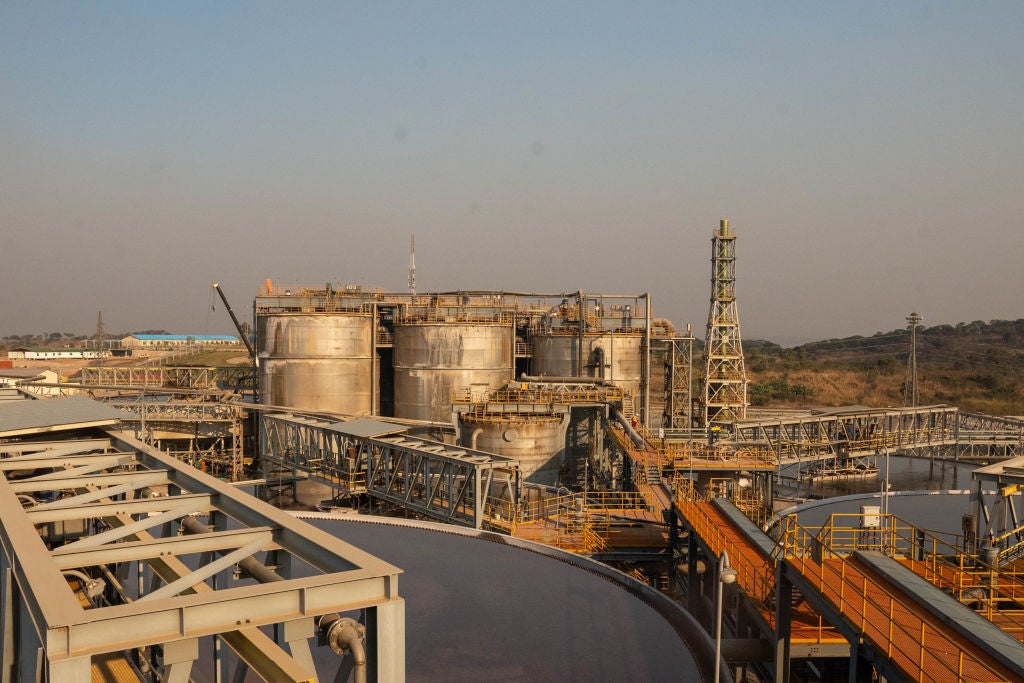With the global energy transition under way, critical minerals are fast replacing fossil fuels as the most sought after natural resources. Critical minerals such as copper, lithium, manganese and nickel are essential to the development of technologies behind solar PV, wind energy, electric vehicles (EVs) and energy storage. Energy Monitor recently identified the top ten countries by ownership of critical minerals reserves; equally important is which countries dominate ownership of the supply chain by investing in those “critical minerals powerhouses”.
Using data from our parent company, GlobalData, which defines key critical minerals for the energy transition as copper, cobalt, lithium, nickel and manganese, Energy Monitor has identified those countries that exercise a significant degree of control over overseas mines that contain one of these five minerals as a primary commodity. The degree of control is determined by examining the domicile of companies with either majority control, or the largest stake in mines that are already in operation, or under development (at the pre-feasibility, feasibility or construction stage).
Domestic mines in China are excluded from the analysis due to data gaps – it is likely that China would rank much higher on the list of total mine control if domestic mines were included.
The countries controlling the critical minerals supply chain
Canada, one of the few Western countries with an abundance of cobalt, graphite, lithium and nickel, tops the list for corporate ownership of critical mineral mines already in operation, with a total production of 508 million tonnes per annum (mtpa) overseas as of 2022, and a further 118mtpa at home.
According to GlobalData, the largest Canada-based companies in terms of total mine ownership are Centerra Gold, which owns 14 mines in North America, and EMX Royalty Corporation, a Canada-based precious, base and battery metals royalty company, which owns 15 mines in Canada, the US and Sweden.
Canada is closely followed by the US, which has 292mtpa of critical minerals production located overseas and 281mtpa located domestically. China, for which domestic data isn’t available, follows the US, while next on the list is Britain, which is second in the world for overseas ownership of critical mineral mines, according to GlobalData. Despite owning no domestic mines, British companies control 503mtpa of capacity overseas.
Another country in the top ten is Australia, which boasts the world’s largest lithium reserves, currently valued at more than $425bn, according to GlobalData, and the world’s second-largest reserves by value of copper and cobalt.
Overseas ownership
South American countries Chile and Peru stand out as the top destinations for foreign investment in critical minerals mines. For Canadian companies, the top destination is Chile, as is the case for several other countries controlling the critical minerals supply chain, including the UK and Australia. The top overseas location for mines owned by US companies, on the other hand, is Peru.
Barbara Monterrubio, an energy analyst at GlobalData, told Energy Monitor: “Definitely China, the US and Australia are three countries that are really strong economically and also in minerals reserves and mining. As well as controlling several value chains, they have reserves of the base minerals that so many energy transition industries rely upon. They will really dictate the prices of these minerals going forward, and even other countries with large reserves will have to rely on those big three for the investment and technical know-how to exploit them.”
China’s critical minerals footprint in Africa
Data from GlobalData reveals that Chinese companies own critical mineral mines dotted across all five continents including Africa, where US companies, by contrast, are a lot less present.
Chinese companies have been investing in overseas projects relating to critical minerals “for decades now, especially in the case of copper”, according to 2023 analysis by ISS Insights.
“In the case of lithium, Chinese companies have been taking significant steps since around 2011. This trend does not seem to be stopping, as shown by the recent bid by Tianqi Lithium Corp, one of the largest lithium producers, to acquire Essential Metals Ltd., an Australian lithium explorer,” the analysis continues.
State-owned companies such as Zijin Mining, which is among the top ten companies for total mine ownership in the world, according to GlobalData, have stakes in mines across the globe. Zijin has a 39.6% stake in the new Kamoa Kakula copper mine in the Democratic Republic of Congo, for example, according to ISS Insights.
“In many African countries right now, it is Chinese companies that are exploiting these resources, not the country itself," Monterrubio says. “Even if countries realise the potential of their reserves, they might not have the money to exploit them.”
Joe Biden’s Inflation Reduction Act (IRA) is “shutting African countries out of the supply-chains for critical minerals”, argues a recent article in Foreign Policy. A key provision of the IRA is that tax credits are only available to US consumers who purchase EVs with batteries containing a certain percentage of critical minerals extracted or processed in the US, or any country “with which the United States has a free trade agreement”.
At the moment, the US only has 20 free trade agreements, and only one with an African nation, Morocco, which could limit its ability to match growing demand for EVs with an adequate supply of critical minerals.
Future development plans
A number of companies are planning to ramp up their number of mines in operation over the next few years, reveals data from GlobalData.
Canada retains the top spot for total capacity of planned critical mines (including those at the pre-feasibility, feasibility or construction stage). However, the GlobalData data shows that companies in countries including Australia and Chile are planning to expand their mine ownership, almost entirely domestically in the case of Chilean companies and predominantly abroad for Australian companies.









